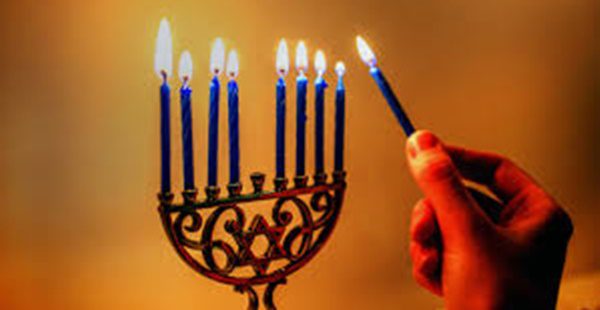Last week I had the privilege of interviewing Rabbi Ariel Stone, of Congregation Shir Tikvah in Portland, Oregon. Rabbi Stone is the recipient of the City of Portland’s 2018 Human Rights Lifetime Achievement Award. She has a long history of working for justice in the Portland area. She has also written a book about Jewish spirituality titled, Because All Is One. Her forthcoming book is titled, The Alef-Bet of Death: Dying as a Jew.
Rabbi Stone and I talked about Hanukkah, Jewish views of the Bible, the Talmud and the Mishna, Jewish views of justice, and how we can work together to defeat the growing rise of anti-Semitism.
The transcript of the conversation will be available soon. You can watch the video below.
The conversation about Hanukkah was especially important from the perspective of mimetic theory, which claims that people are imitative. We are especially imitative when it comes to violence.
Hanukkah remembers the Maccabean rebellion against the Seleucid Empire. The Seleucids controlled Jerusalem. They tried to take over the Jerusalem Temple and install their god in the Temple. The Maccabees didn’t like this, and so they led a violent rebellion against the Seleucids. The Maccabees defeated the Seleucids, reentered the Temple, and wanted to celebrate a festival called Sukkot.
That festival lasts eight days, but they only had enough oil for one day. Today, if you ask any Jew about Hanukkah, they will tell you the miracle is that the candles remained lit for eight days.
But originally, the miracle was primarily thought to be the violent conquest against the Seleucid Empire. This changed in the first century when the Roman Empire controlled Jerusalem. There were Jews who thought, “Let’s be like the Maccabees, who violently pushed back their oppressors, let’s fight against the Romans! God will be with us!”
Those who fought against the Roman Empire lost three wars. The Temple was destroyed in the year 70 CE. After the destruction of the Temple, the rabbis re-taught the story of Hanukkah. They began to teach that the real story of Hanukkah is how God created a miracle that allowed the light to shine despite only having enough oil for one day.
“In so doing,” says Rabbi Stone, “they took the emphasis off the guerilla army overcoming the great odds. And in so doing, they taught the Jewish people that sometimes you can’t fight against superior odds. Sometimes you have to duck and cover. And that, once we went into exile, allowed us to survive living in hostile societies. Because we learned that you don’t have to fight back and die. Sometimes it’s okay if you just figure out how to live and maintain your customs and traditions and history. And believe that one day things are going to get better.”
The Gospel writers claim that Jesus made the same point about violence against the Roman Empire. Jesus constantly counseled against violence. Jesus’ teachings on nonviolence are thoroughly Jewish and in the air of first century Judaism.
For some Christians, this might seem to dilute Jesus, but I find this enriching. Jesus was a Jew and he was formed by the God of Judaism. Violence and nonviolence have been options within Judaism and within the Hebrew scriptures. For example, the book of Daniel was written during the same time as the Macabbean rebellion, but Daniel advised nonviolence in the face of persecution. When it comes to violence and nonviolence, Jesus, Daniel, and many first century Jews, chose nonviolence.
Stay in the loop! Like Teaching Nonviolent Atonement on Facebook!












